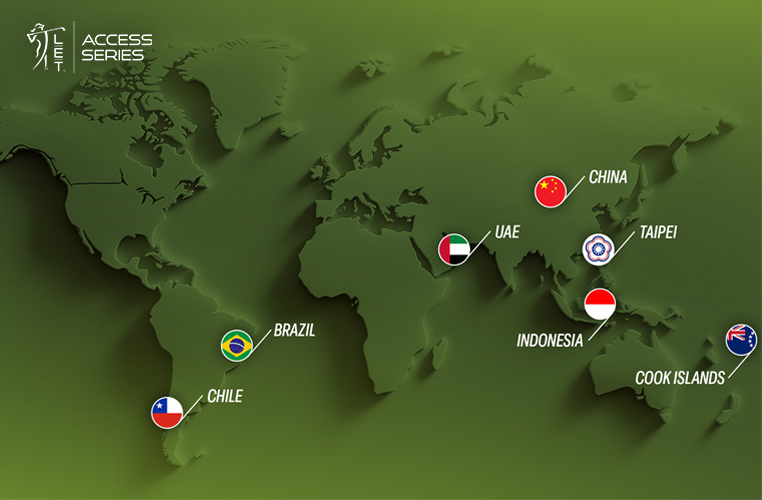2024 was Maho Hayakawa’s best year on the LET Access Series. The Japanese player recorded a top 10, only missed three cuts and ranked second on the total putting strokes gained rankings.
So when she quietly announced her retirement, it came as a surprise.
For golf superstars, retirements often make headlines and stir tributes but on the development circuits, players more often slip quietly into the shadows, their departures unnoticed by all but a few.
So we decided to catch up with Maho and let her explain her decision as she embarks on her next chapter of becoming a Vokey Brand Specialist in Tokyo…
When Hayakawa turned professional in 2019 she gave herself five years. Those five years flew by.
“It sounds a bit ironic,” Hayakawa said, “But 2024 was my best season.”
“Golf is a very hard game and it can come in waves. You get one good year, one bad year. For me I always want it to end on a high note.
“I think it leaves you with a better sensation, like you achieved something.
“I didn’t leave the game feeling like I still had more to offer.”
Hayakawa, who finished 42nd on the 2024 LETAS Order of Merit rankings excelled at short game, demonstrated by her finishing second on the total putting strokes gained. She was only outranked by Tina Mazarino, who finished fourth.
However off the tee, Hayakawa lacked the distance to outperform others.
“I think there was a huge increase in the girls’ average driving distances.
“I traveled with Vanessa Bouvet last year and she was hitting it almost 300 yards. I had this feeling that I could be on Tour, make cuts but I couldn’t win anymore.”
On the golf course, Hayakawa’s highlight was carding a front nine of 29 at the Santander Golf Tour- Avila. The 28-year-old went on a birdie spree carding five birdies and one miraculous hole-in-one to start the tournament.
Yet it was her experiences away from the golf course that Hayakawa will treasure.
“Calatayud was always a highlight and the players’ party (official and unofficial) at the end of the season.
“I think the camaraderie that we create on Tour is amazing and the joy of finishing a season with your fellow playmates is special.
“We create this bond because we fight together. Of course we are competing against each other but mostly we are battling the same thing. We are not battling each other. We are battling the course.”
“It was a very hard decision to quit because you see your friends competing and you feel like you should, right? Because everyone else is doing it. But I’ve always known that there were other ways I could serve the world instead of playing.
“ I do love to play, but I also love serving people. I want to be there for people. I want to do something for people. And just playing, it was hard for me to see the impact that I was making on other people.”
Hayakawa, who described herself as “a third culture kid” due to the nature of her father’s job, first picked up golf aged seven in Dubai at Emirates Golf Club, where the LET had an event for 15 years.
From Dubai, her family moved to Mexico city where she continued playing golf before returning to Japan to play on the JLPGA.
“I wasn’t playing that well back then,” Hayakawa explained, “The level was extremely hard and I just couldn’t compete.
“So I was wondering if I should quit or not after one year of professional golf and my dad ended up moving to Spain. So I said I’m going to try out Q school there and then decide.
“I got into a lot of events and then I started playing better and I eventually made it to the LET one year and then I knew I could actually do this.
“So with all that moving, golf really helped me to create friends in each environment.


Hayakawa, despite playing under the red circle and white flag, lived in Spain during her years on Tour and loves the Spanish culture.
“It has great weather, the people are great and the culture is great. In Spain, I got the impression that they work so that they can live instead of living for work and I thought that was really beautiful, you know, they really embraced life as it should be.”
After making the decision to quit, Hayakawa moved back to Japan and has been busy on her new path.
“So from January to March, I did two part-time jobs. I did golf instruction at an indoor golf academy called Sanctuary golf and then I did some work as a masseuse. I learned about stretching, more about the muscles, and that was really cool.
“Then I got scouted by Titleist, working as a Vokey Design Wedges specialist. At first I wasn’t really sure if they really wanted me because I don’t have any 9-5 job experience.
“While I don’t have any experience with business and marketing, I did have a lot of experiences with short games because I was never a long hitter.
“So I really had to study the wedge game. I had to study what wedges worked for what course conditions and when we started talking about that, they were really interested in having me on their team and here I am.
For Hayakawa continuing in the golf industry was a no brainer.
“I always knew I wanted to stay in the golf industry. I think golf is sometimes undervalued in a lot of countries. I think COVID helped boost its popularity, but I still have a feeling, especially in Japan, that people think it’s a sport for the rich and elite.
“I want to help break that barrier. I want to really show how this game can change you, what it can give to each individual.
Knowing when to quit is an important decision for a golfer. Arguably more important than knowing when to turn professional .
Speaking about her advice to know when to quit, Hayakawa said: “The right time to quit is when you’re ready to really be honest with yourself. That requires a lot of courage. I’ve met some really amazing people who after a lot of thinking, decided to stick with golf, not for the money or anything, but just because they love the game and that’s great.
“Then there’s other people who continue playing because they don’t want to give up. I think once you realize that the only reason that you want to keep going is because you don’t want to be a failure or you don’t want to give up or you’re scared to see the other options in your life. That might be the time to retire.
“The only reason you should continue is because you really love to play the game.”
After five years of having her amazing presence on Tour, all at the LET Access Series wish Maho the very best in her next exciting adventure.





